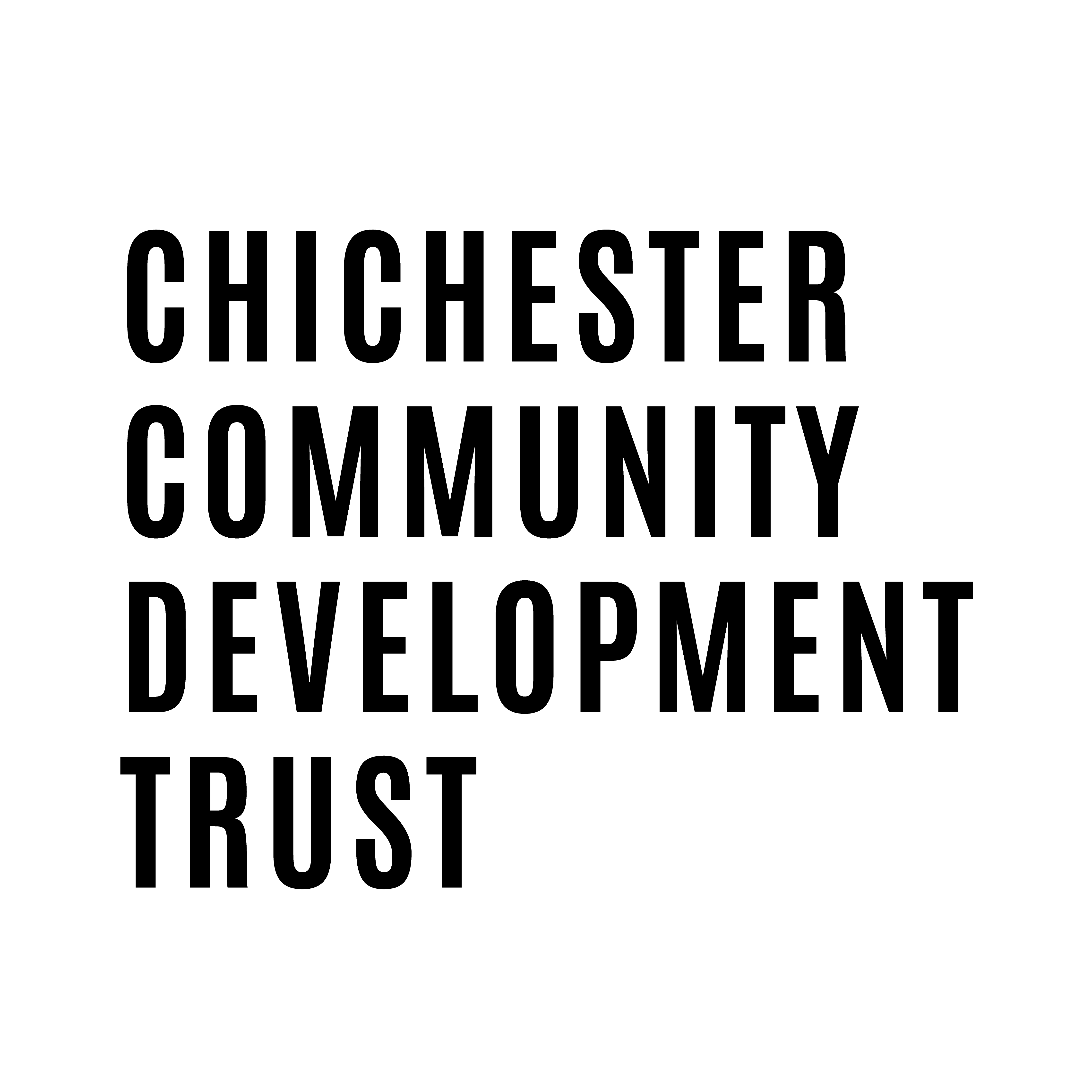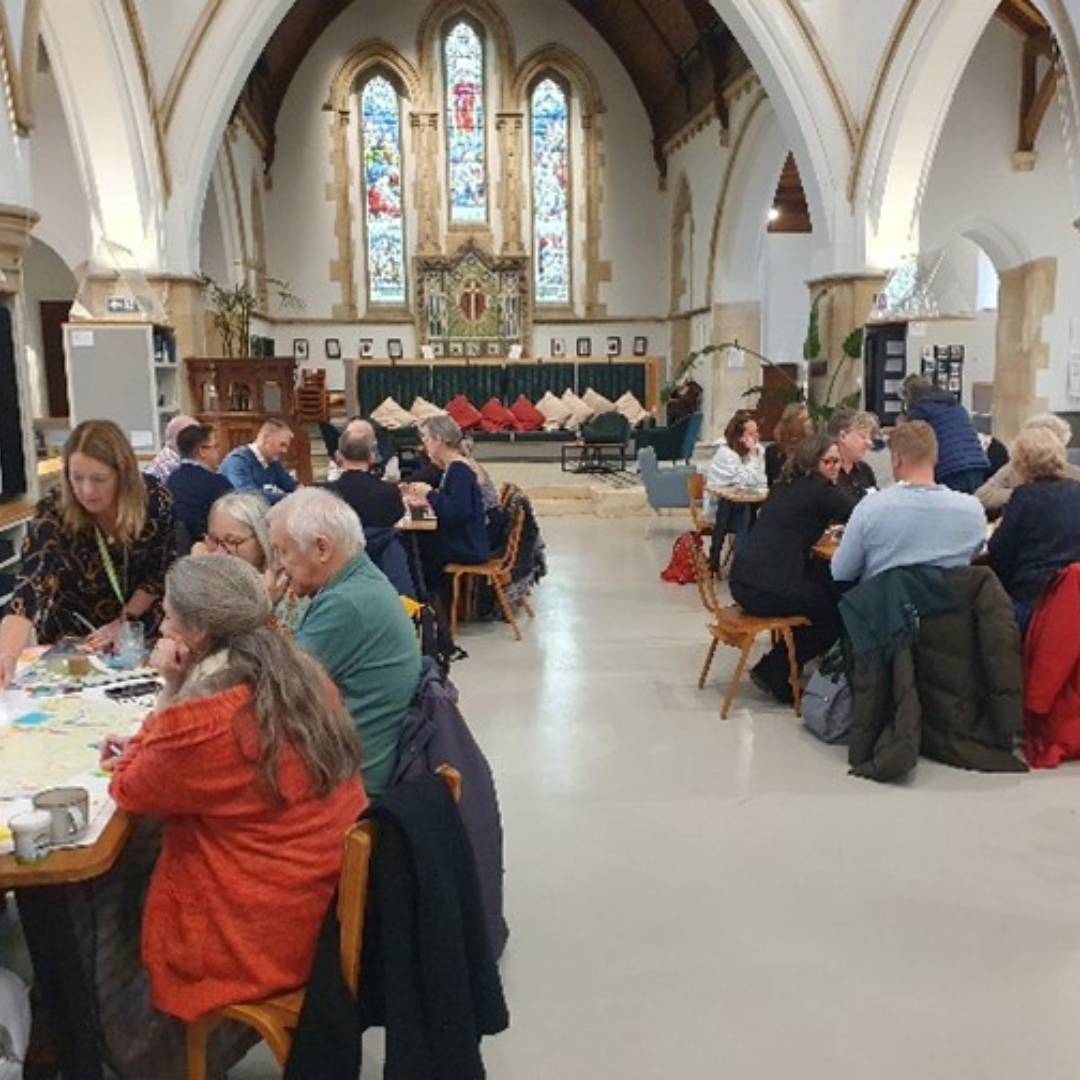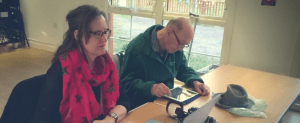The cross-pollination workshop was a pilot event, hosted jointly by the Open University, Glass-House Community Led Design and Chichester Community Development Trust. The purpose of this event was to bring together multiple stakeholders from across the Chichester district to better map out the community assets currently available; what projects people are working on they would like collaboration with; what projects they would like to see started; and what resources they have to share.
The event
The workshop took place in Graylingwell Chapel from 1-3pm, a space designed to connect the community, bringing people together to support each other. Over thirty key stakeholders from organisations across the district including West Sussex, Chichester and City Council; local charities including Stone Pillow, Age UK and Think Out Chichester; landmark organisations including Chichester Festival Theatre and Pallant House Gallery; and representation of resident’s groups including residents’ associations and Registered Providers of Housing Associations. Led jointly by Glass-House and Open University representatives, the session was interactive, engaging and very practical. Starting off with brief introductions to each other so that attendants could establish they were sitting amongst the exercises were all short, focussed and had clear outputs required.
The first exercise practical exercise was to map the assets that exist to support the community across the Chichester district. These could be people, projects or places, and attendees were invited to move around between tables to share knowledge and information. Following the session the listing across each tables’ maps were collated and digitised and these can now be found on a map that is live and will continue to evolve at future cross-pollination events. You can see the map here.
Participants were then invited to complete postcards outlining the projects that they are currently working on, bringing the opportunity for greater collaboration into the room and reducing the chance of duplication of work. Further cards were provided to highlight projects that participants would like to see delivered in the area. This enabled visitors to consider future cooperation or inform each other of activities in the pipeline that might be addressing their needs. The final postcard encouraged all those attending to provide information on resources they were able to share. This could be time, spaces, or skills that are available and people would be willing to incorporate into existing community projects.
Each postcard was then grouped into categories by the hosts and posted up on the walls of the internal meeting rooms of Graylingwell Chapel. Visitors could go up in groups of tables to view the postcards and take pictures of the cards that were of interest to them. Individuals were encouraged to contact other attendees with regard to potential collaboration, and to keep in touch. The postcards created and their authors can be seen in the digitised versions of them that can be found here –
Projects I am currently working on
Next Steps
Chichester Community Development Trust received extremely positive feedback about the value of the session and from this summer are looking to run the workshops on a quarterly basis, encouraging all stakeholders to build momentum with their collaboration. Each subsequent meeting will start with the voice of service users – community members who represent groups in need of community support. Their input will help to feed discussions about projects that are happening and those that could be collectively delivered.
The first of these regular cross-pollination workshops will be taking place on 12th June from 1-3pm at Graylingwell Chapel. Those interested in attending should contact CCDT at partnerships@chichestercdt.org.uk.









